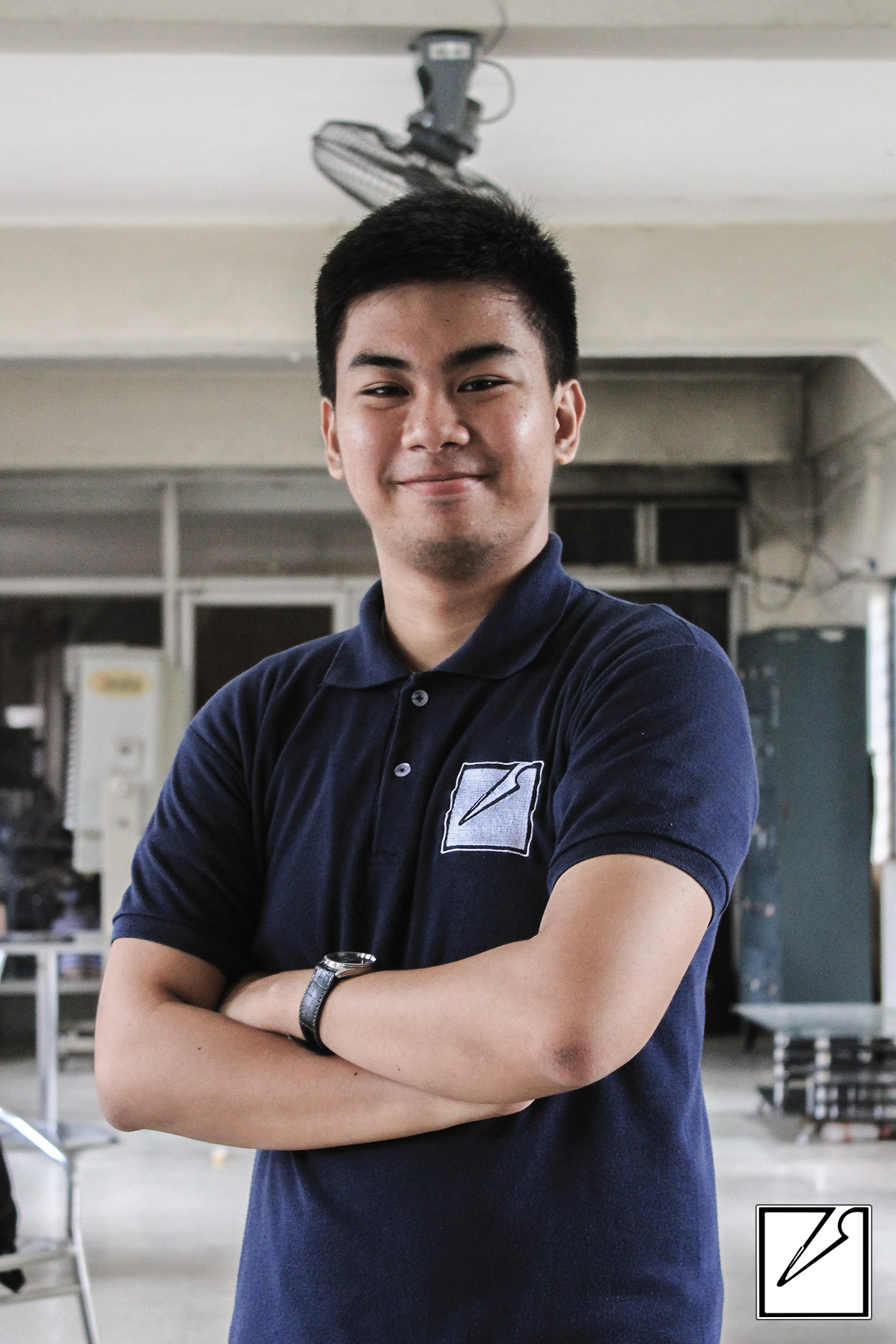✒️ From Beyond 2016 Editor-in-Chief: Frances Espeso
 The omnipresent “change is coming” mantra continues to echo in the hearts and lips of many Filipinos ever since the campaign season officially started last February. Following the will-he-or-won’t-he premise of “Duterteserye” before now-President Rodrigo “Rody” Duterte ultimately filed his candidacy, his mantra became a national philosophy for most of his supporters.
The omnipresent “change is coming” mantra continues to echo in the hearts and lips of many Filipinos ever since the campaign season officially started last February. Following the will-he-or-won’t-he premise of “Duterteserye” before now-President Rodrigo “Rody” Duterte ultimately filed his candidacy, his mantra became a national philosophy for most of his supporters.
Unfortunately, little do these supporters realize that the paradigm shift they expect from a Duterte presidency comes not from a single figurehead, but from somewhere else.
The country introduced the idea of “people power” to the world when Filipinos waged a historical mass uprising against dictator Ferdinand Marcos in 1986. The mass demonstrations along Epifanio de los Santos Avenue, one of Metro Manila’s busiest roads and now the site of horrendous traffic attracted crowds of diverse backgrounds, social classes, and professions. Nuns, teachers, peasants, children and ordinary citizens demanded the return of their rights and their democratic government. “The revolution that surprised the world,” though backed up by big names and political power, remained true to the heart of its moniker–the power of the governed to demand from the governing its dues.
At least one thing is consistent in these game-changing acts of people power — administrations have no choice but to listen and comply once the full power of the public is harnessed.
Historically, the collapse of an oppressive status quo is catalyzed by encounters between individuals or small groups and aggravated by the wall of noise and action brought about by the crowds who have just had enough. At times, these mass demonstrations would usher in immediate change , as in Czechoslovakia in 1989. Half a million rose up in protest in Prague and different parts of the Central European country to demand the communist leadership’s relinquishment of power and the transition to democracy, which led to democratic elections in June 1990, only a year after the Velvet Revolution.
Other times, the fall of existing corrupt political structures has given way to new leaderships of the same nature. In 2005, riots and protests in Kyrgyzstan condemning the alleged rigging of elections during the administration of strongman Askar Askayev resulted in his flight from the country and the establishment of a new government promising transparency and democracy. The demonstrations continued, however, as the new government under Kurmanbek Bakiyev proved to be no different from the previous one and was likewise unseated.
When the public is well-informed, educated, organized and mobilized, no one person holds power over them.
At least one thing is consistent in these game-changing acts of people power — administrations have no choice but to listen and comply once the full power of the public is harnessed. Empires rise and fall with the say of the governed. Ideologies are established, altered and destroyed at the whims and fancies of the masses. When the public is well-informed, educated, organized and mobilized, no one person holds power over them.
“Change is coming,” therefore, should not be the mantra of a single person. It is not an ideology to be ascribed to a six-year administration. It can be a guiding principle and it can be an inspiration to many. But it can also be a catalyst to the downfall of society. Either way, it is how the masses, as a whole, interpret it and choose to carry it out. In the end, the outcome of a new, albeit unconventional presidency, is in the hands of the governed, not the governing.
Frances Espeso
Editor-in-Chief, Beyond: SONA 2016
✒️ From Beyond 2015 Editor-in-Chief: Nicole Cortez
 2015 has been a year of quakes, with impacts both tremendous and small, setting the world on edge and putting everyone susceptible to aftershocks. This year’s edition of Beyond presents a look at some of the events that gently rattled, if not shook, the world this 2015.
2015 has been a year of quakes, with impacts both tremendous and small, setting the world on edge and putting everyone susceptible to aftershocks. This year’s edition of Beyond presents a look at some of the events that gently rattled, if not shook, the world this 2015.
In the Philippines, the first great quake happened in the first half of the year – when corruption allegations against Vice President Jejomar Binay and his son, now-suspended Makati Mayor Junjun Binay, had come surfacing one after the other – constituting a nightmarish shock not only to the Binays but also to the citizens they supposedly serve. Public trust in the Binays has fallen sharply since then, but this did not hinder them from running for office. And so: until the elections in 2016, the country has yet to see who – between the Binays and the voters – ultimately gets the better recovery from this quake.
Yet the quakes had just grown more acute during the year’s second half, when the tremors seemed like well-crafted ploys put in place by the privileged. Among the issues that had arisen is the ‘tanim-bala’ scam at the Ninoy Aquino International Airport, which involved airport security personnel deliberately placing bullets into passengers’ luggages to extort money from them. What has been called the worst international airport has, again, proven it is worth that name.
Just this November, the Philippines saw another quake: the Asia Pacific Economic Cooperation (APEC) summit, where plates had converged as partnerships across nations were discussed. The several arrangements made during the summit seem to have good intentions – but these find their plates grounded principally in inequality and misplaced priorities, seeing as the government continues to ignore internal issues while committing to global goals for which it lacks the means to uphold.
2015 has been a year of quakes, with impacts both tremendous and small, setting the world on edge and putting everyone susceptible to aftershocks.
Similar issues plague what is considered the microcosm of the country – the University of the Philippines. For one, the university is set to experience an imminent quake in the form of yet another cut from its 2016 budget, with the government justifying it as a result of a decrease in the capital outlay.
Meanwhile, the U.P. administration led by Alfredo Pascual was slammed for failing to roll out Electronic UP (eUP) as planned. The project aims to be the university’s new ICT system – and yet until now the administration appears to have no clear-cut plan to achieve that objective.
Fraternity squabbles also rattled the country’s premier university, as Alpha Sigma and Upsilon Sigma Phi got involved in two mauling incidents during UP’s foundation day. The incidents had been widely talked about at one point – but as soon as the hype toned down, the legal proceedings in connection to it got lost too amid the ramble.
But the university turmoil is singularly wee when juxtaposed with larger international conflicts, such as the territorial dispute over the West Philippine Sea and the Islamic State-led war against nations.
Yet the quakes had just grown more acute during the year’s second half, when the tremors seemed like well-crafted ploys put in place by the privileged.
The Philippines and China may have different arguments to promote their claims over the West Philippine Sea, but they do share a common reason for wrangling over it: the area is rich in oil and gas deposits, so naturally they would want to enjoy full control of it. The geopolitical puzzle has gone through so much, yet it remains far from getting solved – a precarious situation that, as many would argue, may escalate into a full-blown military confrontation between the countries involved, with the United States, of course, meddling somewhere in-between.
Meanwhile, the Sunni militant group Islamic State – which considers itself a key harbinger of the looming end of the world – has started stirring up its own quake, sweeping through cities from northern Iraq to Syria, and recently even France. The group has already killed thousands of innocent people and demolished many neighborhoods with the goal of creating a new “caliphate”. Like the West Philippine Sea dispute, the ISIS-led global unrest may rumble on for the foreseeable future.
The quakes show no sign of abating. And so the challenge, now, is to act – to move – even before the next movement unfolds.
Not all quakes, however, lead to losses. Some make gains, as in the case of the war against climate that has officially started with the signing of the climate agreement in the recently concluded Paris Climate Conference. The agreement might not address all climate issues, but at least it is a potential step toward that.
2015 has seen the world shifting right on its ground – and the quakes show no sign of abating. There are more to be expected in the coming year. The challenge, now, is to act – to move – even before the next movement unfolds.
Moving beyond complacency,
Nicole Cortez
Editor-in-Chief, Beyond 2015
✒️ From Beyond 2014 Editor-in-Chief: Erwin Colcol

If there is one word to describe the year that is about to close, it would be “evolutionary”.
2014 saw a number of changes, both positive and negative, that made a big impact on the University, the country and the world. These changes brought about by man and nature contributed much to what makes the concluding year memorable yet controversial.
One landmark change that landed on the front page of newspapers this year was the University of the Philippines’ (UP) academic calendar shift. Aimed at internationalizing the quality of education being offered by the University, the motion was expected to give high hopes for the UP community. However, halfway through the academic year, the University has been bombarded by a number of problems related to the shift, ranging from cancellation of classes to delayed school events and unexpected weather conditions.
Aside from this, UP also saw a major change in its tuition scheme, replacing the age-old Socialized Tuition and Financial Assistance Program is the Socialized Tuition Scheme, with an easier, online application process. But despite its convenience, it still bears the same problems as its predecessor’s.
UP also became the talk of the town this year, as some of its administrative policies created conflicts with the student body and the community. The closure of GAB CAF in UP Manila and CASAA Food Center in UP Diliman and the failure of the newly-established Student Academic Information System (SAIS) are just a few of these admin-related problems.
Yet, no matter how grave they may be, these university issues are much smaller compared to the changes that happened in the country’s social and political landscape.
Though justice has not yet been completely served in the pork barrel scam, we saw the indictment and eventual detainment of three senators responsible for the PDAF scandal, and the continuous call for government accountability in the DAP case.
Moreover, the passage of the Enhanced Defense Cooperation Agreement was expected to bring a positive change towards the US-Philippines relationship. But as it turned out, it only paved the way for more exploitation and violations against the Filipino people. Such is the case of Jennifer Laude, who was killed in Olongapo by an American soldier who was staying for a regular military exercise.
As in the previous years, the Philippines was not spared from natural calamities this year, with the coming of typhoons Glenda and Ruby. The change, however, is seen in how the government and the people responded to these catastrophes.
Around the world, the changes came in varying intensities. The Middle East has been terrorized by the militant group Islamic State of Iraq and Syria or ISIS, while West African countries have been plagued by the Ebola virus. These events affected not only these regions, but also caused panic and fear to the entire world.
Nonetheless, the Philippines’ performance in international sports this year made it to the positive changes that happened this year. Despite lack of government support, Filipino athletes managed to wow the world with their undying teamwork, positive attitude and desire for victory.
Indeed, 2014 has been a year of evolutions. This edition of Beyond gives you a #throwback of the changes that happened this year. Let these events be a part not only of our memories, or of newspapers, history books, or blogs. As you read through and look back, take these as your guide in the mission of bringing more positive changes in the years to come.
Erwin Sanchez Colcol
Editor-in-Chief, Beyond 2014
✒️ From Beyond 2013 Editor-in-Chief: Yvette Morales

Indeed, the year that is about to conclude has been a box of chocolates.
From global issues down to the local ones, the people have had a various desserts, some apt to their taste, while others, not.
Man-made calamities such as the pork barrel scam not only raised a couple of eyebrows, but also ignited a heated Million People March, which is not a surprise, since an identical movement has been done 27 years ago to oust a dictator. This time, it was to seek justice for funds supposedly for the people, but was spent for personal gain by some greedy people, allegedly including prominent lawmakers who are elected to “serve the people.” Privilege speeches of those involved expectedly became a mudslinging speech, which in turn put more than enough dirt to what is already politicized issue.
Another issue of politicizing happens inside the “microcosm of the Philippines.” A student leader was suspended because of a number of absences and a misuse of the council logo. Another bitter chocolate for the Iskolars ng Bayan. Nevertheless, it had a sweet aftertaste as councilor Lem Magaling was reinstated his position in the council.
A handful of other man-made calamities happened and continues to happen around the globe: the government shutdown in the United States which affected many OFWs, the Boston Marathon Bombing and the continuing war in Syria. Indeed, these are far from home, but affect us just the same like imported chocolates.
On the other hand, natural calamities still made it on the most newsworthy in 2013, despite the country being bombarded by typhoons every year.
Super Typhoon Yolanda did not only claim thousands of lives, but also exposed to the world how incompetent our government is. International journalists slammed us the obvious truth. In spite of the loss, the Philippines gained material, financial and emotional support from various countries, showing how the typhoon victims can move on with others’ helping hand.
Before Yolanda, a 7.2 magnitude earthquake shook Eastern Visayas, claiming more than a hundred lives and some historical churches.
Despite everything that we faced, Filipinos still have something we should we proud of. Various kababayans exhibited their skills on different fields, offering their success on typhoon victims.
The year 2013 is a lot for us to absorb. It has marked a handful of events forever noted in our history. Beyond is not even enough to make a report of every newsworthy event. Some are still developing, and people will have to watch for some more aftertastes. But as it always is, after you’ve emptied the box of chocolates, there will always be more in the years to come.
Yvette Morales
Editor-in-Chief, Beyond 2013
✒️ From Beyond 2012 Editor-in-Chief: Toby Roca
The first quarter of 2013 has seen the youngest political formation in UP Diliman sweep the two top posts in the University Student Council (USC) elections, the start of the 90-day national electoral campaign period, and the first papal resignation in almost 600 years. Within the next six months, electoral exercises will decide the fate of the two major institutions in Filipino society.
In Rome, seat of the Catholic Church, cardinals will soon be convened into what is called a Papal Conclave. The assembly is expected to elect a new pope before Easter. Reports indicate that this particular Conclave has the highest chance of producing a pope hailing from the developing world. In fact, several Vatican analysts have floated the scenario of a Filipino succeeding Pope Benedict XVI – a possibility that will mean the world to the 75 million-strong Filipino Catholic flock.
Closer to home, the May 2013 midterm polls are well under way. Thousands of candidates vying for local and national positions across the country are already campaigning, engaging in an electoral spending spree so vast it may once again make our economic numbers spike – as they did in 2007 and 2010. This year, however, might be slightly different from the past election years in terms of general voter sentiment. The voters who will be flocking to poll precincts in May are more critical of political dynasties, and are fed up with “epal” politicians. Besides the oft-used “trapo” branding, Filipino voters have also coined the term “bimpo” (batang isinubo ng magulang sa pulitika) – a jab at prospective politicians who seem to have no credentials other than having parents in public office.
Indeed, 2013 is election year. It is precisely because of this context that for this year, Beyond focuses on electoral exercises that have made the headlines in the University and, yes, beyond. This issue will interrogate the just-concluded USC elections, the ongoing national campaign, and the Papal Conclave via a simple question: Who will benefit from these elections? It is important to note that these elections are held in order to legitimize institutions of authority. Therefore, analyzing these events must ultimately be grounded on the impact they will have on those from whom authority springs from, and is directed at – the people.
Beyond will also be reviewing the events of the past year, as it has done so in previous issues. We’ve also included UP stories from 2012 that will continue to have an impact on the University and the community it sustains in the years to come.
This issue will also feature a Newsmakers section, wherein the top personalities of 2012 here and abroad are profiled in less than 150 words. It is an effort to further condense the past year’s events, and make Beyond 2013 as comprehensive as possible.
As a post script, we also added The Year So Far section, a nod to the events that have grabbed headlines during the first quarter of the year.
Finally, a note on our format. We’ve decided to release Beyond online primarily for economic reasons – printing a 24-page publication is prohibitively expensive for any student organization. There is also the stop-murdering-the-trees gambit. But we also want to send a message to students to start valuing the student publications that do get printed. Having readers throw the publications away or seeing them lie around everywhere after being read isn’t just disrespectful – it’s downright insulting. And come on, the number of publications – student or mainstream – that go out on print will start to dwindle soon. We have to start treating our printed publications not just as carriers of history, but as pieces of history themselves.
Forever beyond propaganda,
Toby Roca
Editor-in-Chief, Beyond 2012
